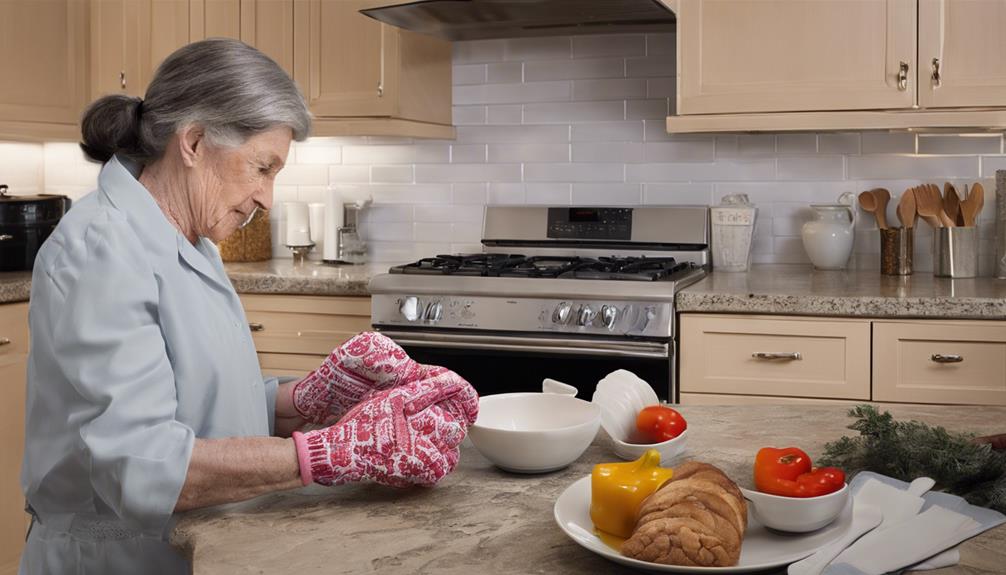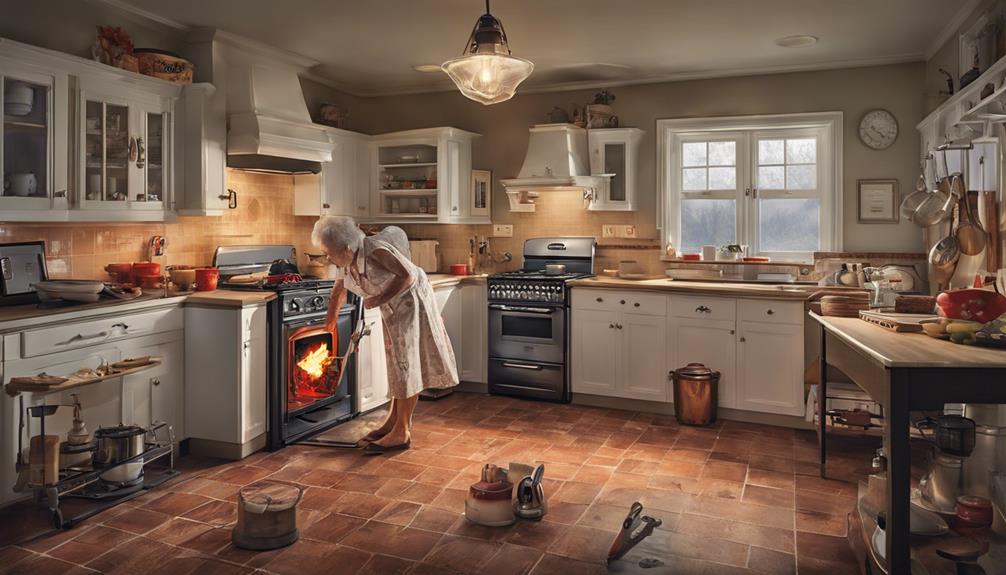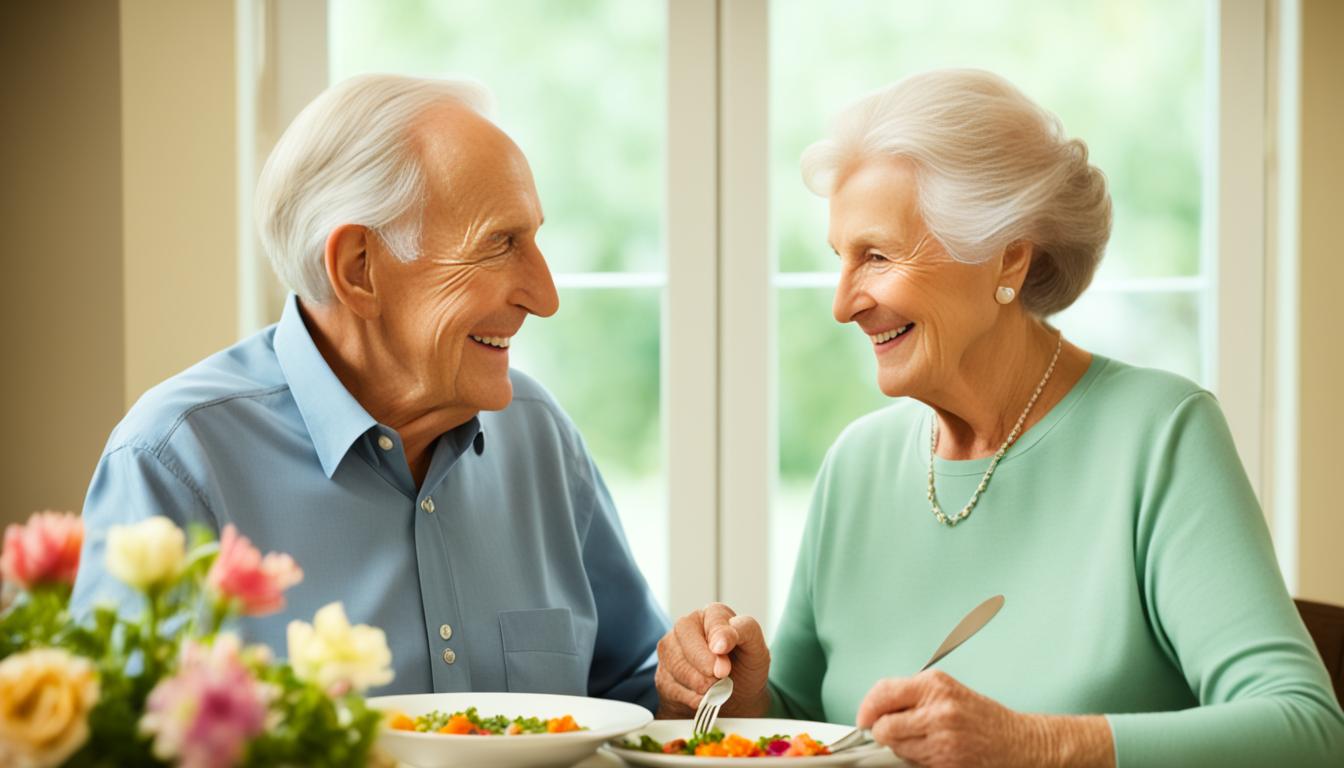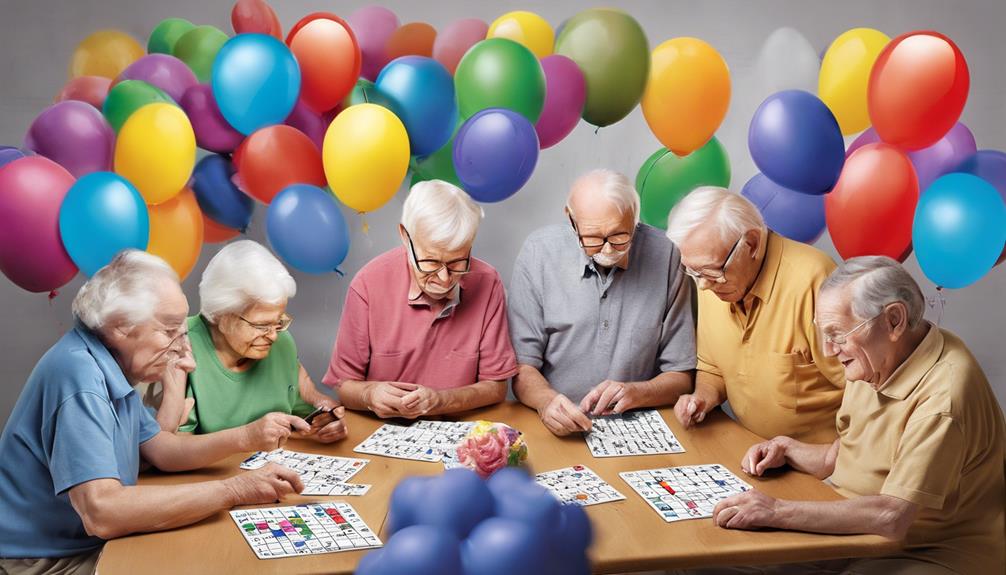Have you ever considered the possible dangers of cooking with loved ones who have dementia?
In the hustle and bustle of meal preparation, it's easy to overlook safety measures that could make a significant difference in preventing accidents.
Let's explore some practical tips that can help create a secure cooking environment for our loved ones with dementia, ensuring their well-being and independence in the kitchen.
Key Takeaways
- Supervise closely during cooking
- Use safety devices effectively
- Implement fire safety measures
- Prepare for emergencies with readiness
Kitchen Layout and Organization
When setting up the kitchen for a family member with dementia, we should prioritize organization and accessibility of essential items to promote their independence and safety. Individuals with dementia face safety risks in the kitchen due to potential hazards like sharp objects or hot surfaces. To mitigate these risks, it's crucial to arrange the kitchen layout thoughtfully.
Safety devices such as stove knob covers, automatic shut-off devices, and non-slip mats can be beneficial in preventing accidents. Organizing kitchen items in easy-to-reach locations not only fosters independence but also reduces the chances of confusion and frustration during food preparation. Color-coded labels and clear containers can aid in identifying and locating items efficiently.
Designating specific areas for meal prep, cooking, and cleaning helps maintain a structured environment, making tasks more manageable for a person with dementia. By implementing these safety measures and ensuring an organized kitchen space, we can enhance the overall safety and well-being of our loved ones.
Safe Cooking Practices

To ensure the safety of our loved ones in the kitchen, it's essential to adopt safe cooking practices that minimize risks and promote a secure cooking environment. When cooking with a person with dementia, using automatic shut-off appliances can help prevent accidents caused by forgetfulness.
Encouraging the use of oven mitts can protect against burns, and keeping pot handles turned inward can prevent spills and burns. Utilizing cutting boards not only maintains a safe environment but also helps prevent knife accidents.
Additionally, incorporating timers into the cooking process ensures that food is cooked properly and reduces the risk of overcooking incidents. By following these practices, we can create a safer kitchen environment for our family members with dementia, allowing them to continue enjoying the pleasures of cooking while minimizing potential hazards.
Monitoring and Supervision
Regular monitoring and supervision are crucial elements in ensuring the safety and well-being of family members with dementia in the kitchen. Supervision plays a vital role in preventing accidents, guiding the proper use of kitchen tools, and maintaining a secure cooking environment.
By closely monitoring our loved ones with dementia during meal preparation, we can quickly identify any signs of confusion or forgetfulness, allowing us to provide immediate assistance and guidance. This proactive approach not only helps prevent injuries but also fosters a sense of security for the person with dementia.
Furthermore, supervision enables us to intervene promptly in case of any safety hazards or potential risks that may arise in the kitchen, ensuring a safe cooking experience for our family members. Remember, being present and attentive while offering support in the kitchen can make a significant difference in promoting the well-being and independence of our loved ones with dementia.
Fire Safety Measures

Ensuring the safety of family members with dementia in the kitchen involves implementing essential fire safety measures to prevent potential hazards and protect their well-being. Here are some crucial fire safety measures to consider:
- Have an escape plan: In case of a fire, having a well-thought-out escape plan is vital to ensure a safe evacuation for your loved one with dementia.
- Keep flammable items away from the stove: Reduce the risk of fire accidents in the kitchen by maintaining a safe distance between flammable items and the stove.
- Regularly check smoke detectors: Maintain a functional early warning system by regularly checking and testing smoke detectors for timely fire detection.
- Teach fire safety procedures: Empower your loved one with dementia by teaching them fire safety procedures, equipping them with knowledge on how to handle fire emergencies effectively.
Emergency Preparedness
In times of crisis, having a well-prepared emergency plan can make all the difference for the safety and well-being of your family member with dementia. It's essential to be proactive and ensure that you have all the necessary resources and knowledge to handle emergencies effectively. Here are some key steps to enhance your emergency preparedness:
| Emergency Contacts | First Aid Kit | Nearest Hospital |
|---|---|---|
| Keep a list of important numbers for quick access during emergencies. | Have a fully stocked first aid kit in the kitchen to address minor injuries promptly. | Know the location of the nearest hospital or urgent care center for immediate medical assistance. |
Remember to practice emergency drills with your loved one to ensure preparedness and familiarity with procedures. In case of an emergency, staying calm is crucial. Your composure will not only help you handle the situation efficiently but also provide the necessary support to your family member with dementia. Stay prepared, stay calm, and always prioritize safety.
Frequently Asked Questions
What Are 3 Things to Never Do With Your Loved One With Dementia?
When caring for a loved one with dementia, there are three important things we should never do:
- leave them unattended in the kitchen,
- use sharp utensils, or
- rush them during meal prep.
These actions could lead to accidents or increased confusion for our loved one.
It's crucial to maintain a calm and safe environment, avoid complex tasks, and always prioritize clear communication and patience to ensure a positive cooking experience for them.
How Do You Make a Kitchen Safe With Dementia?
To make a kitchen safe for those with dementia, we prioritize organization and accessibility. We label items clearly, use adaptive utensils, and keep countertops clutter-free. Installing automatic shut-off appliances and safety measures like grab bars and non-slip mats are crucial.
How Do You Cook for Someone With Dementia?
When we cook for someone with dementia, we focus on simplifying tasks, providing clear instructions, and ensuring a safe environment. By adapting recipes and using suitable kitchen tools, we make meal preparation manageable.
Encouraging participation maintains their independence and sense of accomplishment. It's vital to supervise the cooking process, remove hazards, and keep things straightforward. Our approach prioritizes safety, clarity, and inclusion to create a positive cooking experience for our loved ones.
How Do You Handle a Family Member With Dementia?
Handling a family member with dementia can be challenging, but with patience and understanding, we can create a safe environment. Communication, empathy, and tailored support are key.
Seeking guidance from healthcare professionals and implementing safety measures can help ensure their well-being. By prioritizing their needs and providing assistance, we can navigate this journey together with compassion and care.
Conclusion
As we wrap up our cooking safety tips for family members with dementia, remember to create a kitchen that's like a comforting haven, where the aroma of delicious meals fills the air and laughter echoes through the space.
By prioritizing safety, organization, and awareness, we can ensure that cooking remains a joyous and fulfilling activity for our loved ones.
Let's continue to cook with love and care, creating lasting memories in the heart of our homes.









